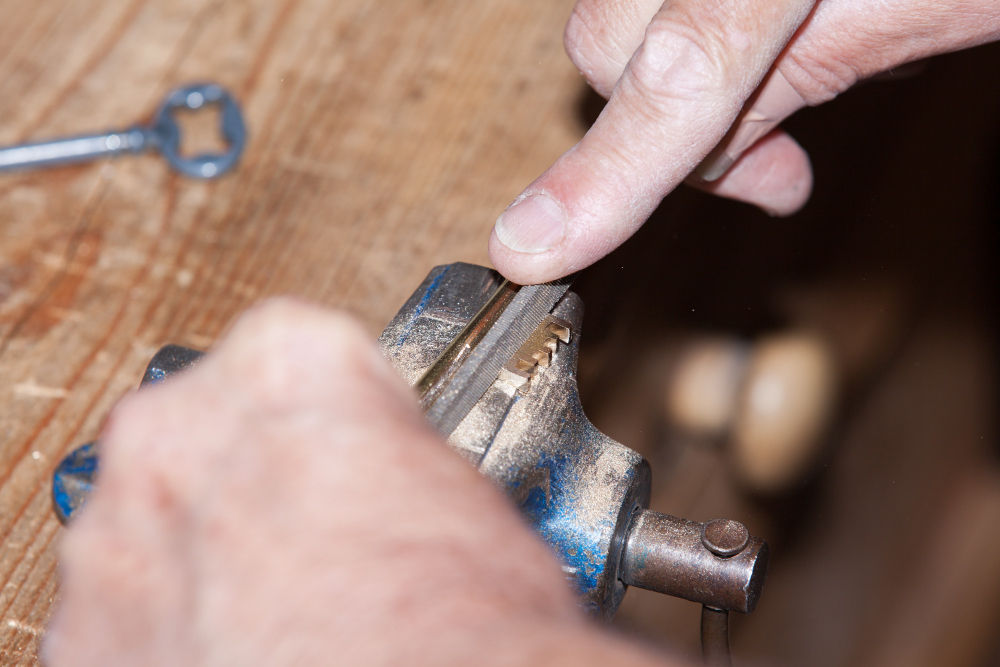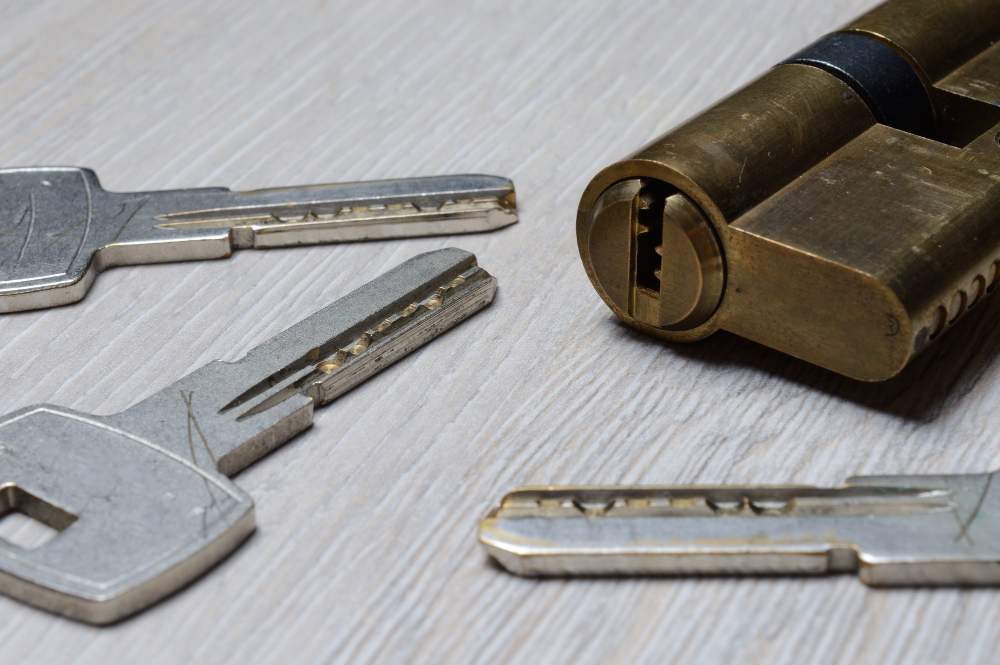When you find yourself in need of a new key, you might wonder about the time involved in the process. Making a key is more complex than it might initially seem, involving various factors and techniques. So, how long does a locksmith take to make a key?
In this article, we’ll explore the fascinating world of key-making from a locksmith’s perspective. We’ll cover various key types, from mechanical to electronic, and how their complexity impacts creation time. We’ll also dive into the tools and techniques used by locksmiths in their craft.
You will learn about the factors that influence the duration of key-making, such as the type of lock, the availability of key blanks, and the method used. Whether you’re locked out of your home or simply need a spare key, this guide will help you set realistic expectations for your next visit to a locksmith.
How Long Does a Locksmith Take to Make a Key?
The time a locksmith takes to make a key varies depending on the type and complexity of the key. Standard house keys are the quickest, often taking just 5-10 minutes to cut and verify. Car keys with transponders require more time, typically 10-30 minutes, due to the additional programming step.
High-security keys, with their intricate patterns, can take 15-45 minutes to produce. Electronic and smart keys are the most time-consuming, taking 30-60 minutes due to their sophisticated technology and requiring specialized tools and software for programming.
The key’s design also impacts the duration. Simple cuts are quick, while complex designs with deep cuts or double-sided patterns take longer. Specialty keys like skeleton or tubular keys may require unique skills and equipment, extending the process further. Overall, key-making can range from a few minutes to over an hour, depending on these factors.

Tools and Techniques Used
Locksmiths employ a variety of tools and techniques to make keys, each suited to different types of keys and situations. Manual key cutting machines offer flexibility for older or unusual keys but require skill and time. Automated key duplicators provide fast, accurate results for standard keys, often completing the process in under a minute.
Specialized programming equipment is essential for electronic and transponder keys. This allows locksmiths to sync new keys with vehicle systems or program smart home fobs. Some high-end locksmiths use laser key cutting technology to reproduce complex patterns precisely, particularly useful for high-security keys.
When original keys are unavailable, key code machines can create new keys based on specific codes. The choice of tool depends on the key type, required precision, and the locksmith’s expertise. Each method offers unique advantages in speed, accuracy, and versatility.
Experience and Skill of the Locksmith
Expertise and efficiency
The experience and skill of a locksmith significantly impact their efficiency and effectiveness. Skilled locksmiths can quickly identify and resolve lock issues, saving time and minimizing damage. Their expertise allows them to adapt to various situations and find creative solutions, especially in emergencies.
Certification and experience
Hiring a certified locksmith ensures adherence to industry standards and up-to-date knowledge of modern security systems. Certification provides peace of mind and often comes with warranties and proper insurance.
Experience is equally crucial, as seasoned locksmiths have encountered diverse lock types and developed efficient techniques over time. They typically prioritize customer satisfaction and may have access to high-quality parts through established supplier relationships.
Overall, the combination of expertise, ownership and experience makes a locksmith more reliable and capable of handling complex security challenges.
Specific Situations
Emergency services
Locksmith services cater to various situations, with emergency scenarios and the choice between in-store and mobile services being key considerations. Emergencies, such as lockouts or break-ins, require swift response times and 24/7 availability.
Locksmiths must be prepared for diverse scenarios, prioritize client safety, and offer temporary solutions when needed.
In-store vs. mobile services
In-store services provide a controlled environment for detailed consultations, product demonstrations, and complex key-cutting tasks. They often offer competitive pricing and a wide product selection.
Mobile services, on the other hand, bring convenience directly to the client’s location. They’re essential for emergencies and on-site work, allowing locksmiths to assess security needs in context.
While in-store services excel in non-urgent situations and comprehensive security planning, mobile services offer rapid response and the ability to work on location.
Benefits of Hiring a Professional Locksmith to Make a Key
Professional locksmiths offer precise key cutting and expertise in various lock mechanisms. Their knowledge spans standard to high-security systems, minimizing errors and potential damage. They handle diverse key types accurately and save time by preventing issues.
Locksmiths ensure key compatibility, adhere to security standards, and practice ethical key duplication. Their comprehensive approach enhances overall security for both residential and commercial clients, contributing to long-term lock efficiency and system integrity.
Ethical practices in key duplication, including proper authorization and record-keeping, enhance overall security. Their comprehensive approach ensures not just functional keys but also contributes to the long-term security and efficiency of locks for both residential and commercial clients.

Conclusion
In conclusion, understanding how long does a locksmith take to make a key is crucial for managing expectations and appreciating the complexity of the process. We hope this article has helped you realize that key creation times can vary significantly, from a quick five-minute job for a standard house key to up to an hour for sophisticated electronic keys.
The expertise of professional locksmiths plays a vital role in ensuring accuracy, security, and efficiency in key making. By exploring the factors influencing key creation timeframes and the benefits of professional services, we trust you now have a clearer picture of the locksmith’s craft.
Remember, while speed is important, the quality and security of your keys should always be the priority. Whether you need a simple key duplicate or a complex smart key programmed, a professional locksmith’s time and expertise are invaluable investments in your property’s security.


